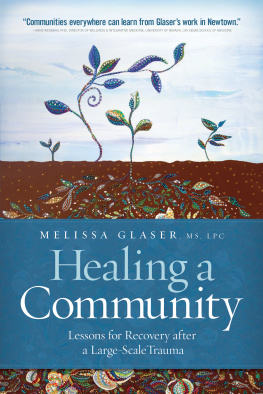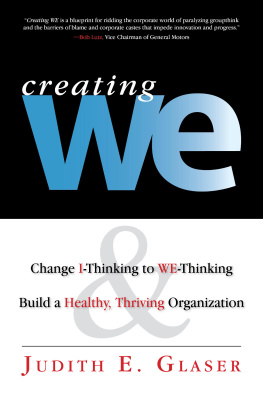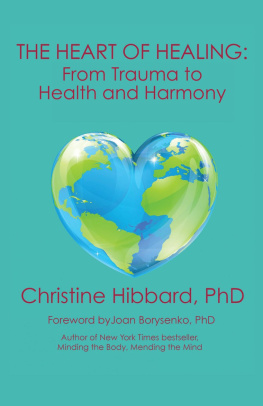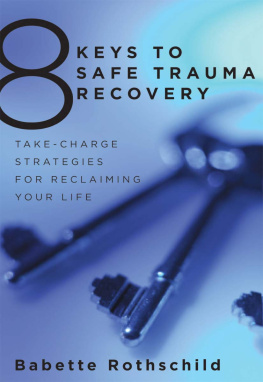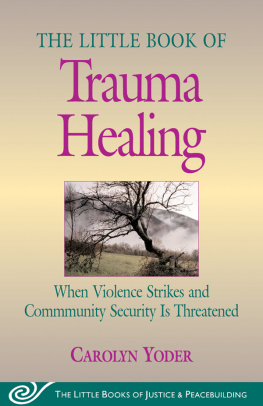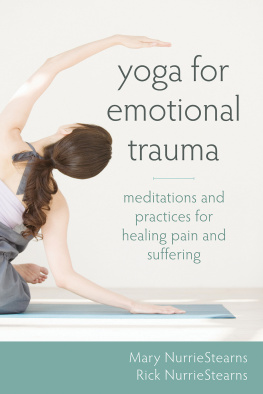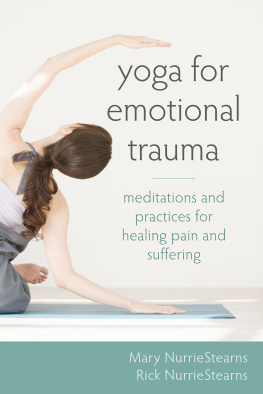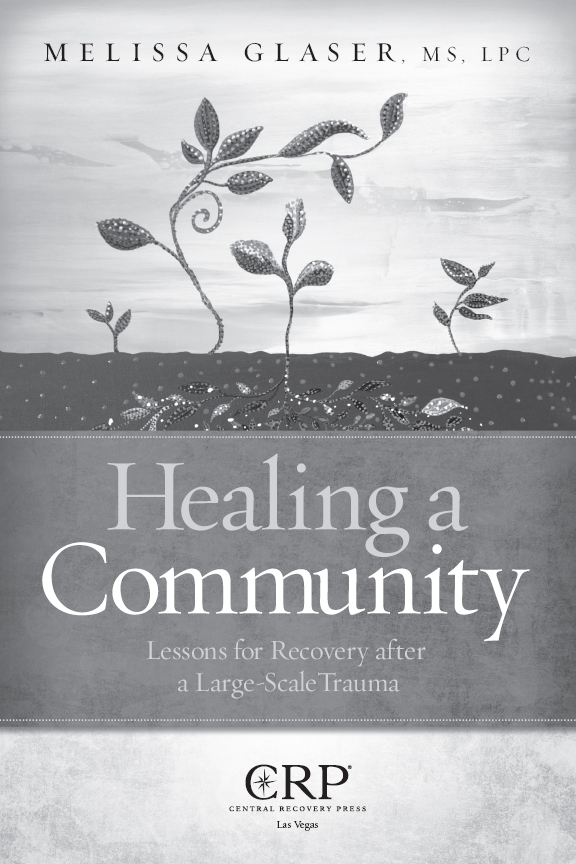
SPECIAL PRAISE FOR
Healing a Community
Melissa Glasers Healing a Community serves as a road map for those who unfortunately need to address the mental, emotional, spiritual, interpersonal, and community aspects of a tragedy.
KEN DRUCK, PhD
Best-Selling Author, The Real Rules of Life
Grief Coach to Sandy Hook Families
Targeting the issue of whats next? after a tragedy, Healing a Community is a groundbreaking blueprint for recovery and resiliency after large-scale trauma a must read for anyone in municipality, emergency-planning, or incident care.
PAMELA H. PRATT, LCSW
American Red Cross Disaster Relief Volunteer
Although every tragedy and community is different, any town can learn from and prepare for crisis by utilizing the lessons learned and reported in this book. A sensitive, thoughtful guide, Melissa breaks the healing process into manageable albeit difficult steps, addressing the process, the accomplishments, and the difficulties encountered along the path to resilience.
BARBARA LAVI, PhD
Clinical Psychologist Specializing in Trauma and Child Psychotherapy
A beautifully honest and direct report of what happens in the therapeutic world when a community experiences a mass tragedy. I had the pleasure of working closely with Melissa in her role as the coordinator of the Newtown Recovery and Resiliency Center and I admired and appreciated her skill at navigating the challenges that came with this role.
DORRIE CAROLAN
Founder and Executive Director
Newtown Parent Connection
As a member of a team that treated the Sandy Hook community after the shooting, I can say Melissa Glasers book is well worth reading. FEMA had declared the entire town a victim, which was a first, and Healing a Community provides an insiders view of the response at a level yet unseen.
J. BARRY MASCARI, EDD, LPC, LCADC
Author Specializing in Disaster Recovery
Associate Professor and Chair of the Counselor Education Department
Kean University
Healing a Community
Central Recovery Press (CRP) is committed to publishing exceptional materials addressing addiction treatment, recovery, and behavioral healthcare topics.
For more information, visit www.centralrecoverypress.com.
2018 by Melissa Glaser
All rights reserved. Published 2018. Printed in the United States of America.
No part of this publication may be reproduced, stored in a retrieval system, or transmitted in any form or by any means, electronic, mechanical, photocopying, recording, or otherwise, without the written permission of the publisher.
Publisher: Central Recovery Press
3321 N. Buffalo Drive
Las Vegas, NV 89129
23 22 21 20 19 181 2 3 4 5
Library of Congress Cataloging-in-Publication Data
Names: Glaser, Melissa, author.
Title: Healing a community : lessons for recovery after a large-scale trauma / Melissa Glaser.
Description: Las Vegas, NV : Central Recovery Press, [2018]
Identifiers: LCCN 2018034128 (print) | LCCN 2018035781 (ebook) | ISBN 9781942094913 (ebook) | ISBN 9781942094906 (pbk. : alk. paper)
Subjects: LCSH: Community psychology. | Community mental health services. Mass shootingsPsychological aspects. | Psychic traumaTreatment. | Community life.
Classification: LCC RA790.55 (ebook) | LCC RA790.55 .G53 2018 (print) | DDC 362.2/2dc23
LC record available at https://lccn.loc.gov/2018034128
Author photo by Janet Taub. Used with permission.
Every attempt has been made to contact copyright holders. If copyright holders have not been properly acknowledged, please contact us. Central Recovery Press will be happy to rectify the omission in future printings of this book.
Publishers Note: This book contains general information about relationships, recovery, and related matters. The information is not medical advice. This book is not an alternative to medical advice from your doctor or other professional healthcare provider.
Our books represent the experiences and opinions of their authors only. Every effort has been made to ensure that events, institutions, and statistics presented in our books as facts are accurate and up-to-date. To protect their privacy, the names of some of the people, places, and institutions in this book may have been changed.
Cover and interior design by Marisa Jackson. Cover image Erika Pochybova.
DEDICATED TO HILDA PLAUT,
MARIANNE COHEN, AND WILL COHEN
TABLE OF CONTENTS
by Amy Ream, Las Vegas-based therapist
FOREWORD
I was on a plane headed home on October 1, 2017, when mass tragedy struck my community, Las Vegas, Nevada. A lone gunman killed fifty-eight people and injured 851 more at the Route 91 Harvest festival outside the Mandalay Bay resort. It was, to date, the deadliest mass shooting in modern US history, and the emotional and mental trauma people in the community have suffered in the aftermath is staggering. A book like Melissa Glasers Healing a Community would have helped prepare us for the recovery effort, which is ongoing. Many parallels exist between what happened in Newtown and Las Vegas, as different as the two places are, so I recommend this book to anyone in a position to help their community should tragedy strike.
When I landed at McCarran Airport in Las Vegas, it was immediately clear that no one knew how to handle the confusion, chaos, and anguish people were suffering there. As a psychotherapist trained in crisis intervention, I would help the survivors seek solace and comfort in the days and months to come. Las Vegas had never experienced this type of crisis, or one of such magnitude, so the whole city was in shock, and from the moment the incident occurred, it was apparent there would be a long recovery process with many unknown variables.
Some of the questions were logistical. Who was in charge? Where should we go to provide crisis intervention therapy? Who would be the direct point of contact? As a result, I was sent to multiple locations and initially unable to help due to poor planning. Las Vegas has long been recognized as a potential target for terrorist attacks, yet how a large-scale recovery effort might work was not considered in advance. Therapists committed to see individuals in their private practices and on site, at crisis management locations, but direction was often unclear and funds were not readily available. Without any real coordination, we worked together to make sure all aspects of the victims needs were being met.
Once a group was established to facilitate support teams, I connected with them and began doing crisis intervention work on a team of therapists at a resiliency center that was born out of the shooting and funded through state, county, and federal grants. The victims would tell me devastating stories about the fear they experienced. A feeling of safety is extremely important for individuals who have witnessed death and destruction and who are in shock. That sense of security was taken that night. And the recovery process continues to this day, more than a year after the shooting.
In Healing a Community, Melissa Glaser gives an effective overview of this process. She highlights the importance of identifying professionals in the impacted community who are qualified to provide support, as well as many other important strategies that should be put in place to direct interventions in a time of crisis. This information would have been invaluable to Las Vegas in October of 2017. The topics she covers address many of the issues we faced, namely how best to provide therapeutic support to the public. Having a guideline to follow, such as the one provided in this book, might have helped us to establish a direct line of management for therapeutic services and provide guidance in light of the emotional, political, financial, and social complications we experienced in the weeks and months afterward.
Next page
